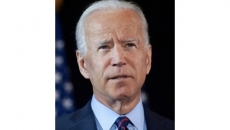A plan by the City of Vancouver to gain Health Canada approval to decriminalize small amounts of illicit drugs has won support from the mayors of seven other British Columbia cities.
A statement signed by the mayors of Victoria, Saanich, Nanaimo, Kamloops, Burnaby, New Westminster and Port Coquitlam says they support the so-called Vancouver Model to eliminate criminal penalties for simple possession and they want the federal government to do the same.
.@kennedystewart supports Vancouver City's move to #decriminalize simple drug possession with a health-focussed approach to tackling the overdose crisis. @JustinTrudeau @PattyHajdu: approve this health exemption, stop stigma & save lives with #drugdecrim.https://t.co/kzKU9I7YxM pic.twitter.com/p9szG5E92K
— MAPS Canada (@MAPSCanada) June 11, 2021
The mayors say they are on the front lines of a worsening overdose crisis that is claiming the lives of thousands of people.
They urge Health Canada to approve what they call the "groundbreaking" approach, saying it will allow other municipalities to study decriminalization and understand it as a way to counter the overdose crisis.
Under the Vancouver Model, the city, police department and regional health authority worked together to set initial thresholds for 15 common illicit drugs and anyone found in possession of less than the threshold amount would not face criminal, financial or administrative penalties.
The mayors say the plan offers a health-focused approach to substance use, allowing users to avoid stigma and more easily seek help for addiction treatment or other services.
Vancouver submitted its final proposal to Health Canada on June 1, making it the first jurisdiction in the country to apply for such an exemption from federal drug laws.
The seven mayors say Vancouver is not alone in dealing with the severe impacts of the overdose crisis, especially when compounded by the challenges of the COVID-19 pandemic.
"We still need more action on access to safe supply of pharmaceutical alternatives to poison street drugs, expanded harm reduction services, improved primary and mental health supports, flexible pathways to treatment with culturally appropriate options and stigma-free educational programming," the statement says.
Data from the BC Coroners Service shows 680 people across the province died from toxic illicit drugs between Jan. 1 and April 30 this year.
Since January 2016, the overdose crisis has claimed the lives of almost 7,000 British Columbians, the mayors say.






